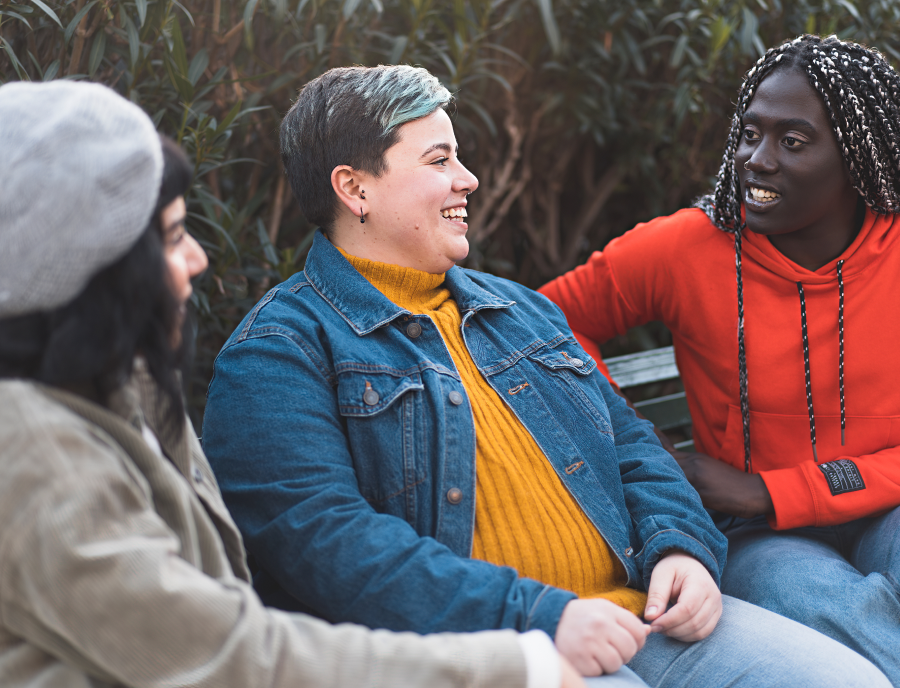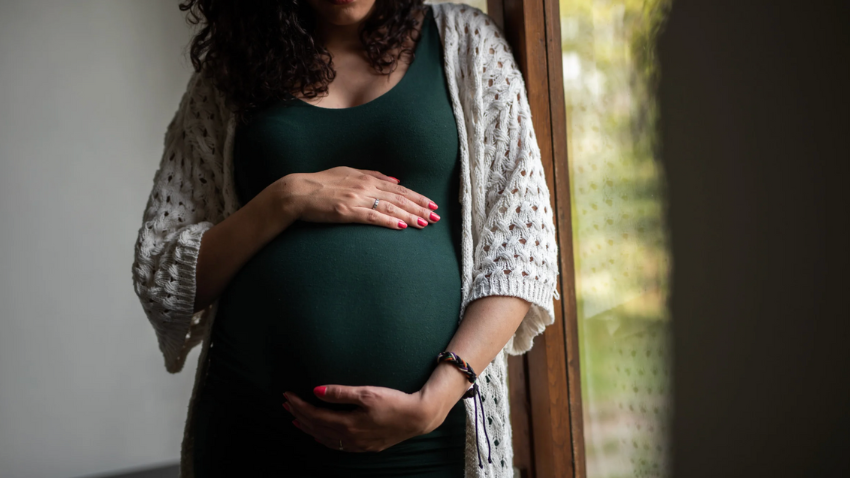- Endometriosis diagnosis takes an average of 10 years. Online communities offer support, but beware of sensationalized or inaccurate stories.
- Engaging with endometriosis information online can be stressful. Evaluate the information's accuracy, necessity, timing, and kindness before engaging.
- Prioritize mental health by setting intentional practices for consuming endometriosis information online. Focus on credible sources and personalized treatment plans.
The path to receiving an official endometriosis (endo) diagnosis can be long and difficult. First, it takes women in the United States 10 years on average to get a proper diagnosis. [1] Then comes the frustrating trial-and-error process of finding the right treatment plan to manage symptoms. Layer on frightening personal stories and anecdotes from other patients that are shared on social media and conditions are ripe for significant stress.
Women with a recent endo diagnosis—and those who suspect they have it—often dive into social media, message boards, blogs, online support groups, podcasts, television, and newspaper op-eds to learn what endometriosis could mean for them.
While finding supportive communities can be a great source of strength for patients, it is not uncommon to get flooded with horror stories about living with endometriosis. Stories of being minimized and dismissed by medical professionals and healthcare systems run rampant. “Your doctor likely won’t believe your symptoms or care about your pain” is a common message from women who have had that kind of unfortunate first-hand experience.
It's also not unusual to hear stories of partners, family members, friends, and employers who don’t understand or honor how the condition can impact daily living. This can lead to fears around a diagnosis leading to divorce, estranged relationships, and job loss.
Add in stories of infertility and stories about repeat pelvic surgeries every few years. It’s no wonder that the future could start to feel grim, overwhelming, or some combination of the two.
These vulnerable experiences—which are shared so courageously—are very real, valid, and common. But, the impact they have on mental health is well worth talking about. After all, for as many scary stories as there are, there are still stories of successful condition management and heartwarming care along the way.
Finding supportive communities, online and in-person
Medicine and science progress at rapid rates, but the dialogue around menstruation, menstrual disorders, and conditions that primarily impact women lag behind due to stigma and a general lack of attention toward women’s health.
For some, it is still a challenge to buy a box of tampons or pads without feeling embarrassed. For others, it’s hard to admit to intense pelvic pain for fear of not being believed. It’s near impossible for others to explain that while excision surgery is considered the gold standard for endometriosis treatment, it is possible to still have pain and symptoms after surgery. This can lead to feeling like a burden or in a state of fear that another surgery is just around the corner.
Online communities on social media, support groups, and message boards can serve as valuable resources to share difficult experiences. The space can give you comfort to express deep feelings, and embrace feeling understood. They can also provide insight around treatment options and timelines.
Although these insights are not coming directly from medical professionals, learning about the possibilities for healing can in fact breed hope and grow resilience.
When online communities do more harm than good
If you’ve been diagnosed with endo, been referred to a specialist, or are experiencing common symptoms and are feeling overloaded by what you’re seeing and hearing, you’re not alone.
Having information available to us day or night can be beneficial. Connecting with others who share our specific experiences can be a great source of support and empowerment. It can also be a source of stress.
Many claims and statistics online are not clinically accurate or they might be lacking context. For example, in a recent study, three out of four women referred for endometriosis treatment had encountered false claims online about the condition, most notably that a diagnosis automatically results in infertility. [2] While endo does impact fertility for some patients, many women are able to conceive still without intervention.
Endometriosis certainly impacts people in a variety of ways, and chronic pain can seriously impact quality of life and mental health. But it's also important to remember that one person’s experience does not shape or reflect your future, your health, or the outcomes of your treatment.
Tips for engaging with online communities
We have greater access to information than ever before, and sometimes that can help boost perceived control; however, if consuming information about endometriosis feels overwhelming, you can always choose not to engage.
How might you determine when you need to walk away for better mental health? Here are some good questions to ask yourself before reading, listening, commenting, or sharing:
- Is this information true?
- Is it necessary for me to engage with this?
- Is it the right time and place?
- Is engaging with this kind to myself and to others?
Sometimes, it can help stress levels to form a practice around your consumption of endometriosis information so that you’re more consciously aware of how you’re engaging and when it might be time to stop. Some tips:
- Minimize reaching for your devices right before bed and right when you wake up in the morning.
- Notice how you’re feeling when you want to dive into endometriosis information. Are you scared? Sad? Bored? Wanting to know something specific? Craving connection with others in pain? Looking at why you’re consuming media can be helpful.
- Notice if there are patterns in how you consume. Do you dive in more when your pain is heightened? Are you more active in online communities after a hard doctor’s appointment?
- Determine if your patterns truly help you feel better. Some days, they might. Other days, they may not.
- Each time you engage, set an intention for yourself. Maybe it’s to express feelings only other people with endometriosis would understand so you feel heard. Maybe it’s sticking to a 15-minute time limit. Maybe it’s checking the accuracy of a questionable source on a more credible source for each piece of content you consume.
Endometriosis is hard on physical and mental health. You deserve to be listened to and have access to a personalized treatment plan that addresses your symptoms. You also deserve to have access to online resources that support you rather than scare you. Visana physicians are specially trained in the diagnosis and treatment of endometriosis.
- Frankel, Lexi R. “A 10-Year Journey to Diagnosis with Endometriosis: An Autobiographical Case Report.” Cureus, 17 Jan. 2022, https://doi.org/10.7759/cureus.21329.
- Arena, Alessandro, et al. “The Social Media Effect: The Impact of Fake News on Women Affected by Endometriosis. A Prospective Observational Study.” European Journal of Obstetrics & Gynecology and Reproductive Biology, vol. 274, July 2022, pp. 101–105, https://doi.org/10.1016/j.ejogrb.2022.05.020. Accessed 10 Nov. 2022.




.png)
.png)





.png)